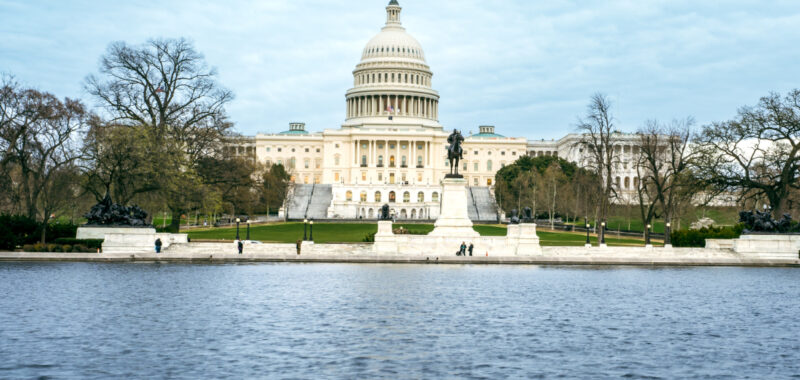Skift Take
The U.S. Senate moved forward in an effort to force U.S.-based hotels and short-term rentals to adopt a new national standard for price comparison. It has adopted similar language to a comparable bill in the House, so it’s possible the bill will become law before the November elections.
A U.S. Senate committee passed a bill Wednesday that would create national standards for pricing across the U.S. travel lodging industry.
The bill, called The Hotel Fees Transparency Act, is designed to achieve pricing transparency. Hotels, short-term rentals, and online travel players would all have to display the total price, including all mandatory fees, upfront.
It now awaits a full Senate vote, which would bring it one step closer to becoming law.
“We are down to the final strokes of what could be significant federal legislation,” said Jim Butler, chairman of the global hospitality group at the California law firm Jeffer Mangels Butler & Mitchell (JMBM). “I’m not aware of any organized opposition to this legislation.”
Next steps
The bipartisan legislation, introduced by Senators Amy Klobuchar (D-Minn.) and Jerry Moran (R-Kan.), passed the Senate Committee on Commerce, Science, & Transportation.
The committee adjusted the language to synch with a comparable bill that the U.S. House of Representatives passed earlier this year, the No Hidden FEES Act.
The original Senate bill didn’t explicitly require online travel intermediaries to also meet the standards for pricing transparency. The House bill did.
The language between the Senate and House bills are now similar but not identical at this point, according to Matt Carrier, senior vice president, federal affairs, policy, and research for the American Hotels & Lodging Association (AHLA).
“I don’t think anything substantive from a policy perspective is different between the two bills,” Carrier said. “But procedurally they’re not exactly the same. We’re talking to leadership in both chambers about how to make real law out of this by reconciling the bills.”
Industry response
The AHLA has thrown its support behind the bill. That was something of a turnabout. For about a dozen years, the hotel lobby had opposed legislation around so-called junk fees. More recently, however, the hotel lobby pivoted to becoming a major advocate of adopting a national standard.
“We urge the Senate to quickly bring this bill to the floor for a vote,” said AHLA interim president and CEO Kevin Carey. “It’s a step toward a more transparent booking process for guests and a level playing field across the lodging industry â including short-term rentals, online travel agencies, metasearch sites, and hotels.”
The Travel Technology Association had advocated for revised language to the Senate bill to include a provision to protect online travel agencies and distributors when hotels provide inaccurate resort fee information. It got that language, with the revised bill protecting online players relying in good faith that the information provided to them is accurate.
“Promoting transparency is a top priority of Travel Tech and its members,” said Laura Chadwick, president and CEO of the association. “Senate Bill 2498 will enable travelers to plan more effectively while promoting fair marketplace competition.â
The U.S. Travel Association said it was “generally supportive of this bill.”
Industry interest in national standards picked up on July 1, when two California state laws were enacted. These laws require travel companies marketing to California residents to comply with upfront disclosure of the total costâincluding all mandatory feesâof hotel rooms, among other travel services like short-term rentals and cruises.
Potential impact
As noted, if passed by the full Senate, the bill must be reconciled with the House version before being sent to the President for signing. The legislation could have far-reaching implications.
- Level playing field: The law would create a single standard across various booking platforms, potentially reducing unfair competition. Many major hotel groups told Skift they back the push for national standards regarding mandatory fee display across all points of sale. Companies include Marriott, Hilton, Hyatt, MGM Resorts, Wyndham, Choice, Accor, IHG, Sonesta, BWH Group, and CitizenM.
- Smaller players will need to catch up. Major hotel groups have already adjusted their systems and pricing strategies to comply with the new regulations in California and would likely be in compliance with a new national standard. However, many smaller independent properties would still have to update their pricing. The process can take a week of spaced-out work for general managers, according to Skift’s reporting.
- Profit impact. The potential law could also impact profit margins for properties that have relied heavily on hidden fees. According to AHLA data, only 6% of hotels nationwide currently charge a mandatory resort/destination/amenity fee, averaging $26 per night.
- Potential impact for regulatory agencies. It’s unclear what effect this bill, if it became law, might have on the Federal Trade Commission’s proposed rule on misleading and deceptive practices, which has been in the works for so long. “The FTCâs ban on drip pricing would apply to all goods and services and provide the FTC as primary enforcer of the law,” Butler said.

